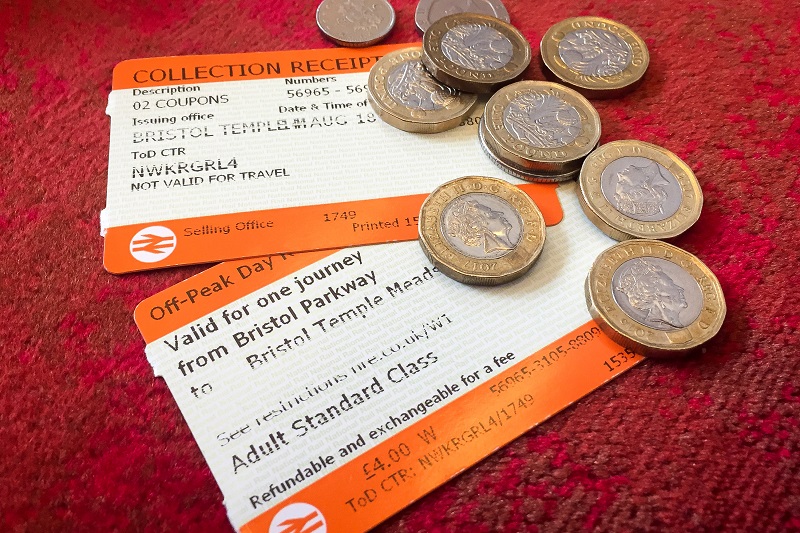The cost of an annual season ticket for Brighton to London commuters could top £6,000 for the first time next year if fares rise by 8%.
If the Government uses the same formula for rail fare rises as it did this year, the cost of a Brighton to London terminals season ticket on any route will rise from £5,616 – £6,065, a hike of £449 or £37.41 a month.
The cost of the cheapest option, using only Thameslink services, would rise from £4,744 to £5,123.
Analysis of industry data by the PA news agency shows this would be the highest annual increase since at least 1996, when Britain’s railways were privatised.
The Department for Transport (DfT) aligned this year’s cap on fare increases with Britain’s average earnings growth for July 2022, which was 5.9%.
Figures published by the Office for National Statistics on Tuesday show the same measure for July 2023 was 8%.
The DfT has previously confirmed that next year’s fare rises will be below the Retail Prices Index (RPI) measure of inflation for July – which was 9% – but has not announced what formula it will use.
Norman Baker, director of external affairs at pressure group Campaign for Better Transport and one-time managing director of Brighton’s The Big Lemon bus company, said: “The Government has yet to confirm next year’s rail increase, but if it follows the same formula as last year and uses today’s average earnings growth rate, passengers will face eye-watering increases.
“Rather than hammer rail passengers yet again, the Government should freeze rail fares – as they have done with fuel duty – until the long-promised ticketing reform takes place.”
A DfT spokeswoman said: “Following last year’s biggest ever Government intervention to cap rail fare increases well below inflation, we’ll continue to protect passengers from cost-of-living pressures and we will not increase next year’s rail fares by as much as the July RPI figure.
“Any increase will also be delayed until March 2024, temporarily freezing fares for passengers to travel at a lower price for the entirety of January and February as the Government continues with its plan to halve inflation.”
The earnings growth figure used to determine the cap on fare rises in 2023 was the percentage change in average total pay in July 2022 compared with a year earlier.
About 45% of fares on Britain’s railways are regulated by the Westminster, Scottish and Welsh Governments.
They include season tickets on most commuter journeys, some off-peak return tickets on long-distance routes, and flexible tickets for travel around major cities.
Train operators set rises in unregulated fares, although these are likely to be very close to changes in regulated ticket prices as their decisions are heavily influenced by governments due to contracts introduced because of the coronavirus pandemic.








Well hardly anyone does this anymore – so if they think it will make up for the shortfall in wages they should think again..
The Travel to work, England and Wales: Census 2021 completely disproves your theory I’m afraid, Chris.
This has a little more detail
https://www.gov.uk/government/statistics/rail-passenger-numbers-and-crowding-on-weekdays-in-major-cities-in-england-and-wales-2022/rail-passenger-numbers-and-crowding-on-weekdays-in-major-cities-in-england-and-wales-2022#rail-trends
I’m still drawing the same conclusion that people are definitely using the train regularly during the commute times?
What is happening with the multi-million pound class action against Govia Thameslink Railway with regards to ripping off over 1 million passengers on the Brighton Main Line to the tune of circa £400 million, which ultimately lies with the DfT who awarded, and allow them to keep their concession, despite frauding the taxpayer on their sister franchise, SouthEastern? Have our local MP’s anything to say on the matter yet?
And costs will rise again once Aslef and the RMT get their way.